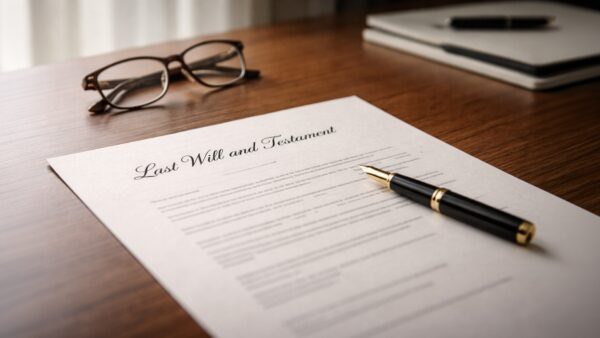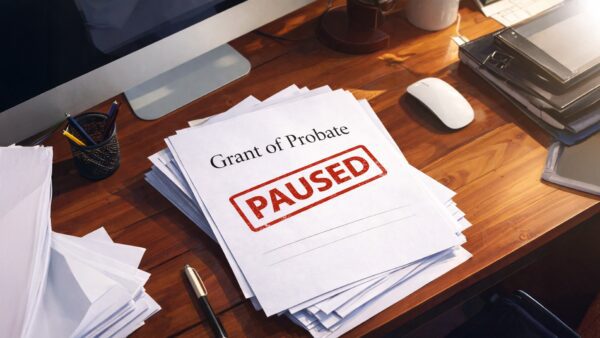What value do you place on your home?
Your home is one of the largest investments you will make. In almost all cases, it is your most important asset not just because of its capital value, but because it’s your home and hopefully a sanctuary. Yet so many of us neglect its importance when arranging for works to be undertaken to it.
It is exciting to be improving or extending your home. However, without proper planning and legal safeguards, home improvement projects very often spiral into dispute, financial loss, and even damage to your most valuable asset.
How can you protect yourself?
- Contractor selection – Select your contractors and professionals very carefully.
- Defined works – Be very clear about what is and what is not included.
- Insurance – Make sure the contractor is adequately insured.
- Contract – Have the contractors and advisers enter into a formal contract.
Selecting a Contractor
Just a few of the many considerations include:
- Where possible, obtaining a personal recommendation, and attending previous jobs and speak to the contractor’s client;
- Checking the contractor’s financial solvency; and
- Ensuring the contractor is adequately insured.
Defining the Works
Make sure that all the works you are instructing to be carried out are clearly defined, and that you specify to what standard these must be completed.
Insuring the Works
Even on small jobs, things can do drastically wrong – a nail through the wrong wall could mean a pipe bursting and flooding your home and any adjoining properties, or faulty wiring could result in fire damage to your property and contents. Standard home insurance will not cover any ongoing works, and you should ensure that your contractor (a) is adequately insured to cover these risks and (b) takes responsibility for such damage by means of a formal contract.
A Formal Contract
The best step you can take to protect yourself is put a proper building contract in place at the outset. A well-drafted contract does more than just describe the works to be carried out – it manages your risk, defines responsibilities, and provides legal recourse if something goes wrong.
Many homeowners assume that standard or unamended forms of agreement offer sufficient protection. In reality, these agreements are inherently contractor-friendly and leave homeowners exposed.
Why do you need a contract?
Without appropriate contractual protection, you may be exposed to serious risks which can affect your ability to live in, sell, or borrow against your home. For example:
1. Defective works
Statutory construction obligations are unlikely to protect you from the full extent of any damage and financial losses you might suffer as a result of poor workmanship. And even where they do, contractors routinely seek to limit your ability to recover losses by inserting onerous limitation clauses into construction forms. Even where you believe you are “covered,” you may find you cannot recoup your losses in practice.
2. Legal and Regulatory Consequences
If works are completed without the necessary approvals or certificates (e.g. building control sign-off or listed building consent), you may be in breach of legal obligations or planning conditions. Standard forms of contract tend to place the burden of complying with these on you, rather than on the contractor. This can cause problems years down the line. Solicitors acting for prospective buyers will raise enquiries about the works, and any gaps in paperwork will come to light.
3. Impact on Property Value and Mortgageability
Failure to complete your project in compliance with your mortgage terms could reduce a valuation of your home – or worse, lose you your mortgage. Mortgage lenders can refuse to lend against properties with unresolved building issues or works which have not been signed off. If you need to refinance or a buyer needs a mortgage, the transaction could fall through.
4. Inadequate Insurance and Uninsured Works
Standard, unamended building contracts often contain minimal insurance provisions, offering little or no protection against professional negligence, leaving you exposed if things go wrong. The risks of professional negligence are real and potentially devastating, as seen in tragic cases like Grenfell Tower.
Your home insurance should be carefully considered to establish if it covers the works, but worse, could also be in jeopardy. Many homeowners are also unaware that their standard buildings insurance policy will almost certainly not cover construction works, and that these need to be insured separately. Failure to notify your insurers or ensure the works are completed in accordance with their requirements could also invalidate your cover.
Your contract, if well drafted, can provide critical protection, allowing you to recover losses arising from negligent or defective works for up to 12 years after completion.
5. Breaching your Leasehold Terms
Leaseholders face heightened risk, as they must comply not only with general legal obligations but also with general legal obligations but also with the specific terms of their lease. Unauthorised works can amount to a breach, exposing the leaseholder to enforcement action or even forfeiture.
Even when works are authorised, problems can arise if the building contract doesn’t require the contractor to comply with the terms of the lease or any licence for alterations. Breach of those terms, however inadvertent, remains the leaseholder’s responsibility. Crucially, you are unlikely to recover losses from the contractor, who is not bound by your lease or licence as they are not a party to that agreement.
Get in touch with our Construction Team
Our specialist Construction Team is experienced in identifying and addressing risks before problems arise. We offer cost-effective, tailored contracts that help safeguard your home and your finances, giving you peace of mind.
Making this small investment now could save you significant time, stress, and expense later – potentially avoiding costly litigation. Get in touch to find out how we can help.









